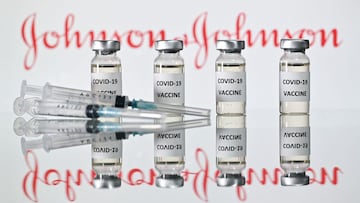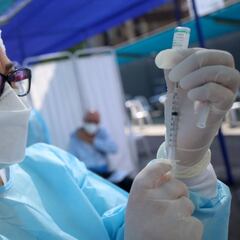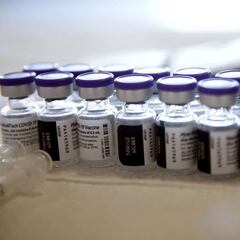FDA vaccine warning: why has Johnson & Johnson’s covid-19 shot been restricted?
The federal drug regulator has linked the J&J vaccination with heightened risk of blood clots and has recommended that it is only used as a last resort.


The Food and Drug Administration (FDA) has imposed strict restrictions on the use of the covid-19 vaccine produced by Johnson & Johnson after it emerged that recipients of the shot appear to have a heightened risk of blood clots.
Instances of the problems with the vaccine have been extremely rare, but the severity of the potential blood clots has forced the FDA to act cautiously. Providers have been told to only use the J&J vaccine to adults who cannot get a different one, or who specifically choose the J&J version.
Johnson & Johnson’s vaccine had been particularly useful for individuals living in remote locations, because it only requires a single dose of the shot. However numerous studies have found that J&J’s vaccine provides less immunity than the two-dose alternatives.
U.S. regulators strictly limited who can receive Johnson & Johnson’s COVID-19 vaccine due to a rare but serious risk of blood clots.
— The Associated Press (@AP) May 5, 2022
The FDA said the shot should only be given to adults who cannot receive a different vaccine or specifically request J&J’s. https://t.co/oloc05y0IY
What has the FDA said about J&J’s covid-19 vaccine?
This is not the first time that a health agency has voiced some concern about the Johnson & Johnson vaccine. In December the Centers for Disease Control and Prevention advised that recipients get the Moderna or Pfizer vaccines wherever possible, due to the safety issues.
Speaking this week, the FDA’s vaccine chief Dr Peter Marks said that Johnson & Johnson is not the best option for most Americans.
“If there’s an alternative that appears to be equally effective in preventing severe outcomes from COVID-19, we’d rather see people opting for that,” he said. “But we’ve been careful to say that - compared to no vaccine - this is still a better option.”
Marks said that recorded blood clots have happened within the first two weeks after vaccination, adding: “So if you had the vaccine six months ago you can sleep soundly tonight knowing this isn’t an issue.”
Johnson & Johnson is planning to spin off its consumer business into a new publicly-traded company. Analysts overwhelmingly say it’s a smart business move, but it could also come with some risks. Watch the full video here: https://t.co/0F3M57RcR6 pic.twitter.com/3p71YSe61O
— CNBC (@CNBC) May 5, 2022
What is the risk with Johnson & Johnson’s coronavirus vaccine?
The vast majority of the vaccines administered in the United States have been produced by either Pfizer or Moderna. More than 200 million Americans have received both doses of the companies’ two-dose vaccines, while fewer than 17 million have had the J&J alternative.
Related stories
Of those to have received the Johnson & Johnson shot, 60 cases of the blood clot side effect have been recorded. This is a rate of 3.23 blood clots per one million vaccines administered. Of the 60 cases identified by federal scientists, nine were fatal.
An email statement from a Johnson & Johnson spokesperson read: “Data continue to support a favorable benefit-risk profile for the Johnson & Johnson COVID-19 vaccine in adults, when compared with no vaccine.”

